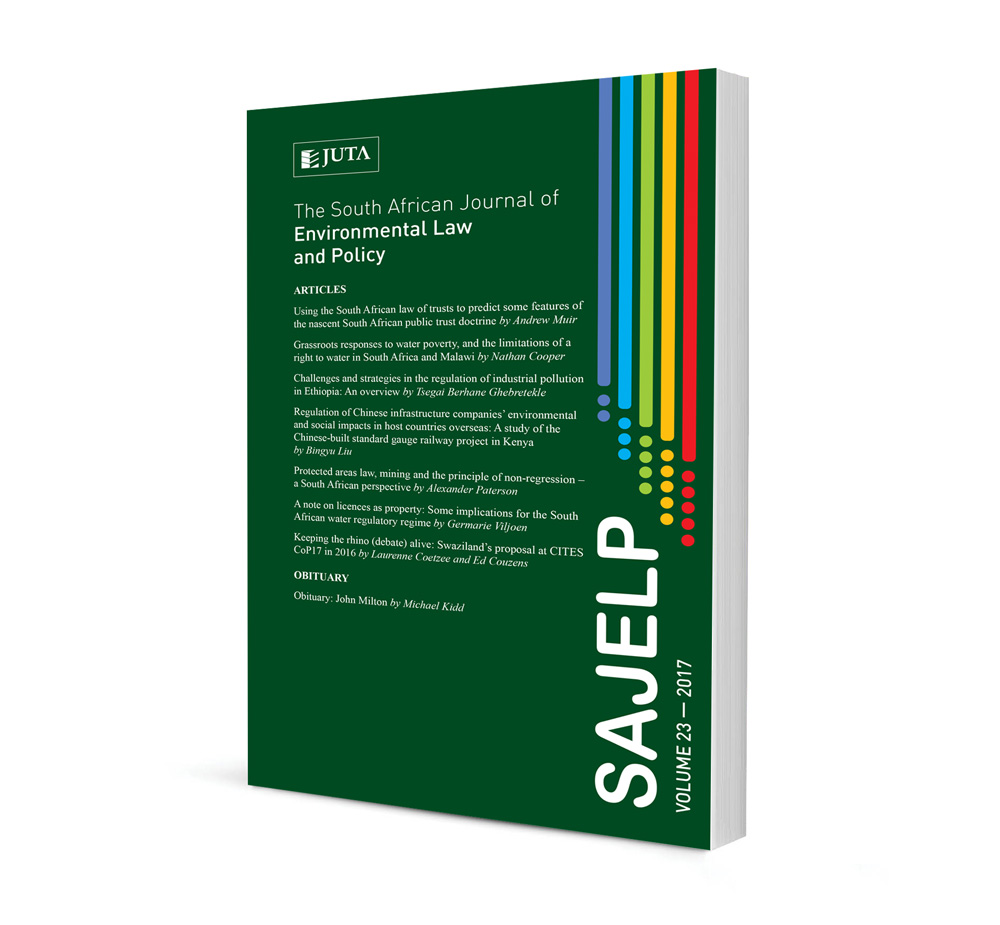
Using the South African Law of Trusts to Predict Some Features of the Nascent South African Public Trust Doctrine
Authors Andrew Muir
ISSN: 2616-8499
Affiliations: None
Source: South African Journal of Environmental Law and Policy 2017, p. 5 – 30
Abstract
South African courts have evolved a foreign legal idea, the English private trust, in accordance with South African legal principles. In doing so, South African common law has been developed to give substance to the English idea of the trust. This has occurred despite the fundamental incompatibility of the two countries’ respective property law regimes which underpin the common law. Unlike the English trust, South African trusts are not based on dual real ownership rights but on contractual personal rights amounting to a personal beneficial interest. The statutory introduction of the South African Public Trust Doctrine (the SAPTD) has similarities with the introduction of the idea of the English trust into South African law. The Anglo-American Doctrine of Public Trust is regarded as a starting point or benchmark against which the SAPTD can be measured. Both the Doctrine of Public Trust and English private trusts are rooted in English law and are premised on dual ownership rights. This article asks certain questions about the nascent SAPTD and uses the similarities in origins between the Doctrine of Public Trust and English private trust law and the latter’s evolution within a South African context to provide possible answers to these questions. In doing so, the South African private trust law is used to predict some likely features of the SAPTD.